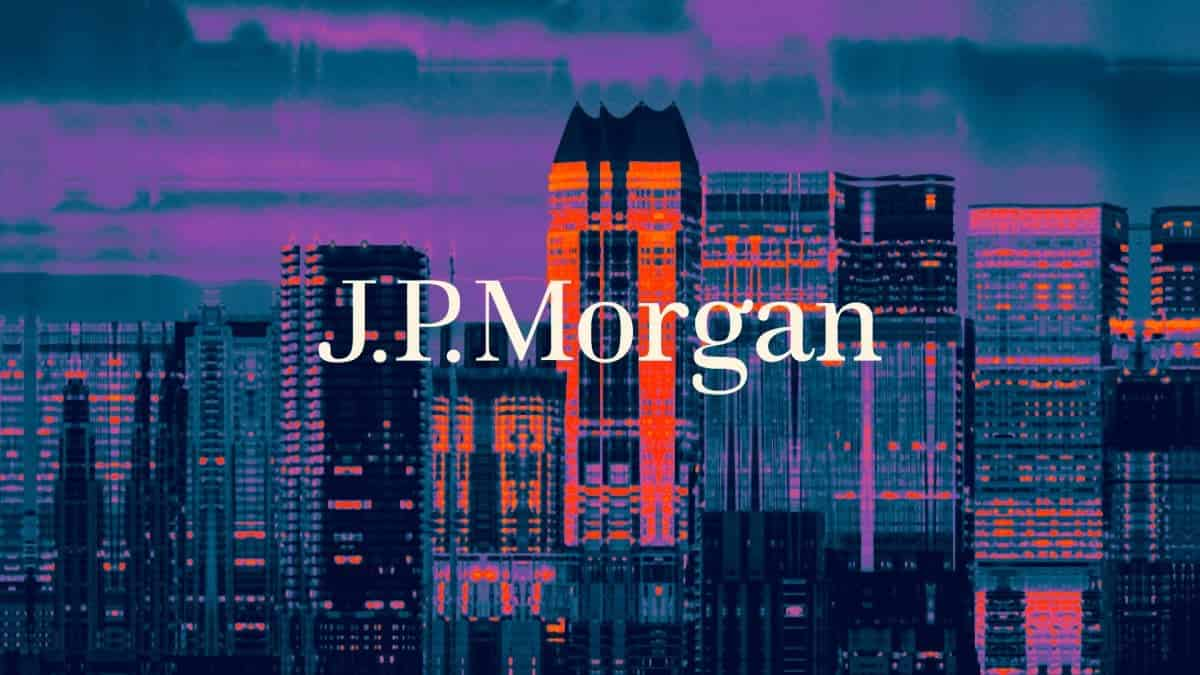Big bank CEOs, including Jamie Dimon, open up about crypto restrictions as Trump administration rolls in
Quick Take Crypto debanking has become a hot-button issue among lawmakers, in part due to a lawsuit Coinbase lodged against the Federal Deposit Insurance Corporation. Banks are not allowed to tell clients why they were debanked, JPMorgan CEO Jamie Dimon said on The Unshakeables podcast.

Big bank CEOs, including JPMorgan Chase's Jamie Dimon, are opening up about their struggles with crypto following criticism that the U.S. government is limiting what they can do in the digital asset industry.
Dimon said JPMorgan does bank a few crypto companies, but said they are at risk of paying millions of dollars in fines if something were to go wrong. Banks are also not allowed to tell clients why they were debanked, Dimon said during a podcast called The Unshakeables co-produced by Chase for Business.
"I think we should be allowed to tell you," Dimon, a longtime crypto critic, said . "When we report stuff, the federal government should probably know about it and there should be far cleaner lines about what we have to do and what we don't have to do or things like that."
For years, crypto firms have complained about the difficulty of establishing and maintaining bank accounts in the U.S. The issue became particularly heated in the aftermath of the FTX collapse, when several governmental agencies — including the nation's top banking regulator, the Office of the Comptroller of the Currency, and the Federal Reserve — issued warnings on the "crypto-asset risks" to banks.
In 2023, after anecdotes of debanked crypto firms began to spread, Castle Island Ventures co-founder Nic Carter coined the phrase "Operation Choke Point 2.0" to describe the alleged crackdown coordinated by government agencies. (The phrase is a reference to the Obama-era "Operation Choke Point," a U.S. Department of Justice initiative that sought to limit banking services for industries considered high-risk for fraud and money laundering, including payday lenders and firearm dealers.)
Lately, crypto debanking has become a hot-button issue in Washington D.C. following a lawsuit lodged against the Federal Deposit Insurance Corporation by Coinbase and lawmakers jumping into the debate. Coinbase, through consultant firm History Associates, sued the FDIC in June for allegedly cutting off the crypto industry from the banking sector. Lawmakers including House Financial Services Chair French Hill (R-Ark.) have vowed to investigate debanking and said his committee would take a "strong position."
The FDIC has said it does discourage financial institutions from working with crypto, and said in a 2024 risk review report that it and other agencies "continue to emphasize that banking organizations are neither prohibited nor discouraged from providing banking services to customers of any specific class or type."
A Trump shift
The Trump administration has shown a friendlier stance toward the crypto industry and could signal a change in how banks work with the crypto industry. Newly appointed FDIC Acting Chair Travis Hill has said that the agency should be clearer in how banks work with crypto following criticism that the government is shutting out the industry.
“If the rules come in and make it a real thing that you can actually do business with, you’ll find that the banking system will come in hard,” Bank of American CEO Brian Moynihan told CNBC on Tuesday. “We have hundreds of patents on blockchain already, we know how to enter the field.”
It's a point echoed by Goldman Sachs CEO David Michael Solomon, who signaled to participants at a Reuters Next conference in December that the Wall Street giant would participate in crypto if regulations in the U.S. change.
"If the regulatory structure changes, we would evaluate that, but at the moment we're not permitted to," Solomon told Reuters when asked about "spot bitcoin trading." Notably, Solomon recently called bitcoin a "speculative asset" without a clear use case, in an interview with Andrew Ross Sorkin on CNBC this week.
Morgan Stanley CEO Ted Pick, who said his bank plans to work with U.S. regulators to see whether it can be more involved in crypto markets, when asked about the subject under a new presidential administration during an interview with CNBC on Thursday. “For us, the equation is really around whether we, as a highly regulated financial institution, can act as transactors," Pick said.
Banks are required to follow the Bank Secrecy Act and other rules aimed at preventing money laundering and other financial-related crimes.
Disclaimer: The content of this article solely reflects the author's opinion and does not represent the platform in any capacity. This article is not intended to serve as a reference for making investment decisions.
You may also like
New spot margin trading pair — SAHARA/USDT!
SAHARAUSDT now launched for futures trading and trading bots
New spot margin trading pair — H/USDT!
Bitget x BLUM Carnival: Grab a share of 2,635,000 BLUM
